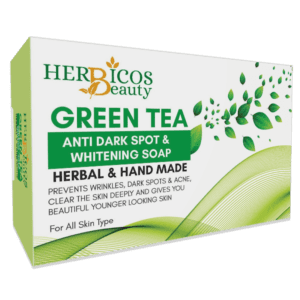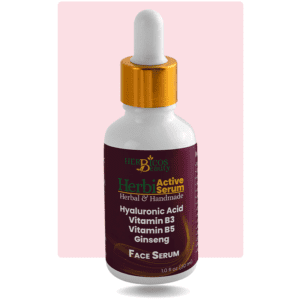
How to Maintain Skin Glow in Ramadan
Ramadan, the holy month observed by Muslims worldwide, is a period of fasting, prayer, reflection, and community. During this month, Muslims abstain from food and drink from dawn until sunset. While the spiritual benefits of Ramadan are immense, it’s essential to pay attention to one’s physical health, including skincare. Maintaining skin glow during Ramadan can be challenging due to changes in diet, hydration levels, and sleep patterns. However, with the right strategies, it’s possible to keep your skin healthy and radiant throughout the month.
1. Introduction to Ramadan and Its Significance
Ramadan is the ninth month of the Islamic lunar calendar and holds great significance for Muslims. It commemorates the revelation of the Quran to Prophet Muhammad and is observed by fasting from dawn until sunset. It’s a time for spiritual reflection, increased devotion, and acts of charity.
2. Importance of Maintaining Skin Health During Ramadan
While fasting is a central aspect of Ramadan, it can have implications for skin health. Dehydration, changes in dietary habits, and disrupted sleep patterns can affect the skin’s appearance and vitality. Therefore, it’s crucial to pay attention to skincare routines during this time to ensure that your skin remains healthy and glowing.
3. Understanding the Impact of Fasting on Skin Health
3.1 Decreased Water Intake
During Ramadan, the limited hours of fasting mean reduced water intake, which can lead to dehydration. Dehydrated skin appears dull, dry, and prone to wrinkles and fine lines.
3.2 Changes in Diet
The dietary changes that accompany Ramadan, such as consuming heavier meals during Suhoor (pre-dawn meal) and Iftar (breaking the fast), can impact skin health. Diets high in processed foods, sugar, and fats can contribute to skin issues like acne and inflammation.
3.3 Sleep Patterns
The altered sleep schedule during Ramadan, with Suhoor and Taraweeh prayers often extending late into the night, can disrupt the body’s natural circadian rhythm. Poor sleep quality and inadequate rest can manifest in dark circles, puffiness, and tired-looking skin.
4. Tips for Maintaining Skin Glow During Ramadan
4.1 Hydration Is Key
Drink plenty of water during non-fasting hours to stay hydrated. Coconut water, herbal teas, and water-rich fruits like watermelon can also contribute to your fluid intake.
4.2 Follow a Balanced Diet
Opt for nutritious foods that are rich in vitamins, minerals, and antioxidants. Include plenty of fruits, vegetables, whole grains, and lean proteins in your meals to support skin health.
4.3 Skincare Routine Adjustments
Adapt your skincare routine to suit the needs of fasting. Use a gentle cleanser, moisturize regularly, and incorporate products with hydrating ingredients like hyaluronic acid.
4.4 Sufficient Sleep and Rest
Prioritize restful sleep to allow your skin time to repair and regenerate. Aim for at least 7-8 hours of sleep per night and establish a bedtime routine to promote relaxation.
4.5 Stress Management
Practice stress-reducing techniques such as deep breathing, meditation, or yoga to minimize the impact of stress on your skin. High stress levels can exacerbate skin conditions like acne and eczema.
4.6 Exercise Regularly
Engage in light to moderate exercise during non-fasting hours to promote circulation and lymphatic drainage. Physical activity can also help reduce stress and improve overall skin health.
4.7 Avoid Excessive Caffeine and Sugar Intake
Limit your consumption of caffeinated beverages and sugary snacks, as they can dehydrate the skin and contribute to inflammation and breakouts.
5. DIY Home Remedies for Skin Rejuvenation
5.1 Honey and Lemon Face Mask
Mix equal parts honey and lemon juice and apply it to your face for 15-20 minutes. Rinse off with warm water to reveal softer, brighter skin.
5.2 Cucumber and Aloe Vera Cooling Mask
Blend cucumber and aloe vera gel to create a soothing mask for irritated or sunburned skin. Leave it on for 10-15 minutes before rinsing off with cool water.
5.3 Green Tea Facial Steam
Boil water and add green tea leaves or a green tea bag. Lean over the steam for a few minutes to open up pores and detoxify the skin.
5.4 Rose Water Toner
Spritz rose water on your face as a refreshing toner to hydrate and balance the skin’s pH levels. It also has anti-inflammatory properties that can soothe redness and irritation.
5.5 Green Tea Soap
Wash your face with green tea soap to cleanse and rejuvenate your skin. Green tea is known for its antioxidant properties, which can help protect the skin from damage.
5.6 Hyaluronic Acid Face Serum
Incorporate a hyaluronic acid face serum into your skincare routine to hydrate and plump the skin. Hyaluronic acid attracts and retains moisture, leaving the skin looking youthful and radiant.
5.7 Organic Skin Care Products
Choose organic skincare products free from harsh chemicals and additives. Natural ingredients like botanical extracts, essential oils, and vitamins nourish the skin without causing irritation or adverse reactions.
6. Conclusion
Maintaining skin glow during Ramadan requires a holistic approach that addresses hydration, nutrition, skincare routines, rest, and stress management. By implementing these tips and incorporating natural remedies into your skincare regimen, you can ensure that your skin remains healthy and radiant throughout the holy month.
FAQs (Frequently Asked Questions)
- Can fasting during Ramadan affect my skin? Fasting can lead to dehydration and changes in diet and sleep patterns, which may impact skin health.
- How can I prevent dehydration during Ramadan? Stay hydrated by drinking plenty of water during non-fasting hours and consuming hydrating foods like fruits and vegetables.
- Are there any specific skincare products I should use during Ramadan? Opt for gentle cleansers, moisturizers, and hydrating serums to keep your skin nourished and hydrated.
- What are some natural remedies for maintaining skin glow in Ramadan? DIY masks using ingredients like honey, lemon, cucumber, and aloe vera can help rejuvenate and brighten the skin.
- Is it normal to experience changes in skin texture during Ramadan? Yes, changes in hydration levels, diet, and sleep patterns can affect the skin’s appearance and texture during fasting.
Author
Dr.Asad (Pharmacist)
10 years experience in Herbal and Nutraceutical


